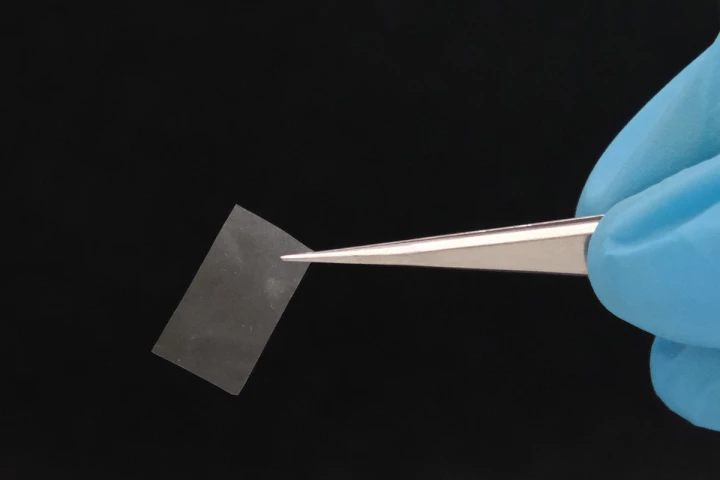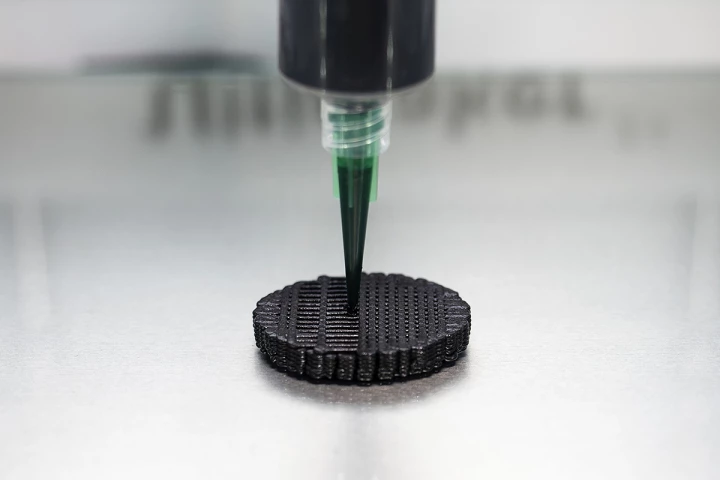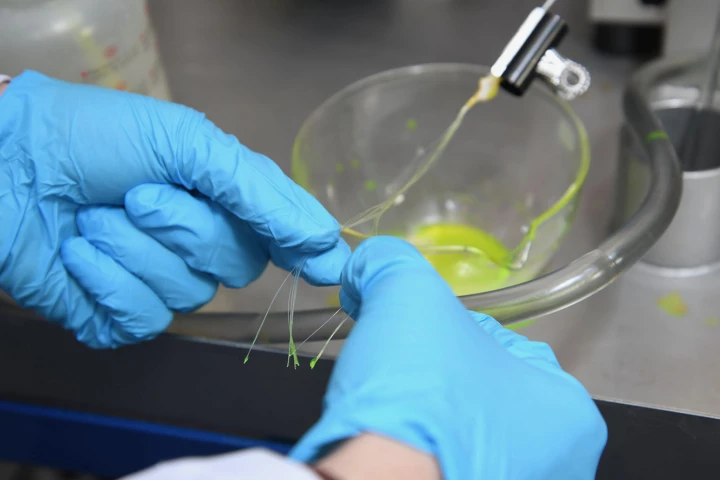Empa
-
Researchers in Switzerland have developed a new film-like material that incorporates living cells from fungi, so it's biodegradable and can help break down waste too. Oh, and you can eat it, if you're curious like that.
-
Swiss researchers claim to have devised a functional living battery powered by the combined efforts of two types of fungi – all in a biodegradable, non-toxic 3D-printed package to run sensors for agriculture and environmental research.
-
Imagine a glow-in-the-dark designer desk, or wooden fence posts that guide you home with their eerie light. Scientists in Switzerland have developed a way to make glowing wood, with the help of a fungus.
-
While topically-applied medications do help alleviate various skin conditions, they'd be even more effective if they could better penetrate the skin's surface. Newly developed nanoceramic "stars" may one day help, by poking tiny holes in the skin.
-
Swiss scientists have developed textile fibers that can be loaded up with just about any drug, then used to dispense that medication right where it's needed in the body. The fibers could be utilized in sutures or bandages, or implanted on their own.
-
While sutures suffice for closing most wounds, they can damage delicate tissue, plus they may allow fluids to leak out when applied to internal organs. Scientists have thus set about improving another wound-closure method known as tissue soldering.
-
Ordinarily, when treating chronic wounds, caregivers go to great lengths to keep them free of bacteria. An experimental new dressing, however, actually introduces bacteria to help such wounds heal.
-
Imagine if there were inexpensive 3D-printed sensors that changed color to show us if something had gotten too warm or was subjected to too much stress. Well, there soon could be – and they'll biodegrade once discarded, to boot.
-
Firefighters have a dangerous job at the best of times, but especially so when they're first entering burning buildings. A new flame-resistant drone could help, by scouting structures to let firefighters know what they'll be up against.
-
Leaking sutures after abdominal surgery are a potentially life-threatening complication that surgeons might not pick up immediately. Researchers have developed a hydrogel patch that can rapidly detects postop leaks at suture sites inside the abdomen.
-
Imagine an army of flying drones focused on detecting building issues before they become serious and carrying out repairs autonomously. It sounds like science fiction, but researchers aim to explore whether it could indeed be realized at the DroneHub.
-
Conventional tests for Alzheimer’s disease don't provide information about what stage it's at. Now, viewing pathological protein clumps with atomic-force microscopy may help doctors not just detect the disease but determine how far it has progressed.
Load More











